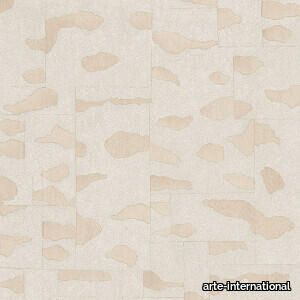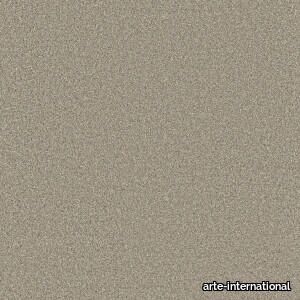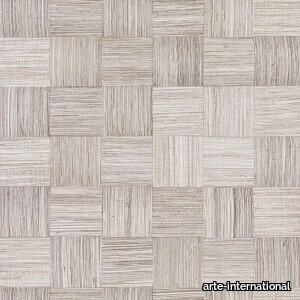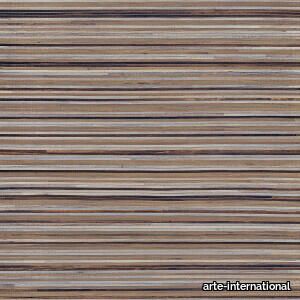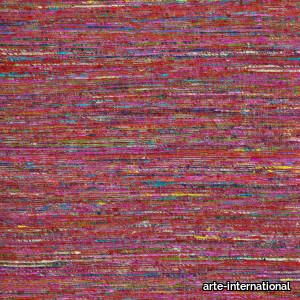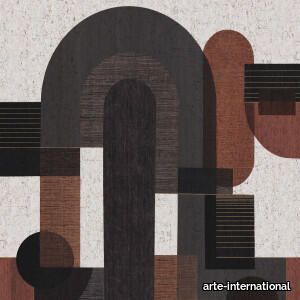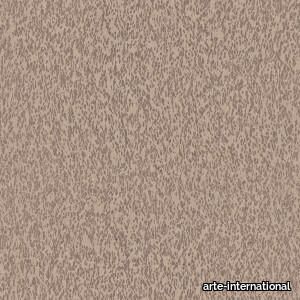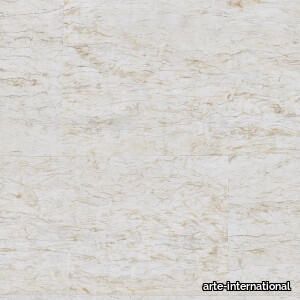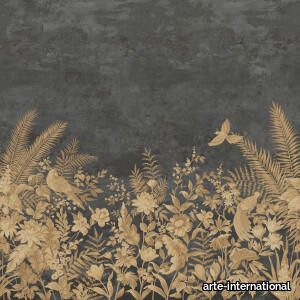SKINÌ TEX
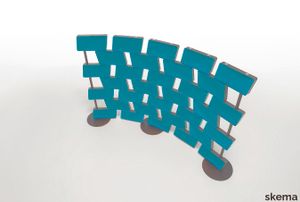
skema > Wallcovering
Skinì TEX the partition with an absorbing function is a reinterpretation of the ancient concept of the partition that allows space to be divided and remodeled in a novel and innovative way, also pandering to acoustic comfort needs. With Skinì TEX there is no need for walls, to be covered or on which to attach sound-absorbing panels, but just it, a screen that can be conveniently transported and reconfigured with a few gestures. With Skinì TEX it is therefore possible to create a new space in which acoustic quality is also enhanced: two goals achieved with a single product. Skinì TEX comes in a wide variety of colors thanks to the soft fabrics used to cover the Skins, thermoformed in polyester and coupled with FIDIVI - ONE fabrics. Technical fabrics, produced by recycling PET bottles and which can be safely recycled in turn. A fabric that stands out for its ability to absorb sound, but also has other qualities: it has excellent resistance to abrasion and rubbing, is designed for use in public environments so it has high resistance to fire and also to exposure to light.
Le Sisal

arte-international > Wallcovering
Sisal was first used widely at the end of the 19th century. Since then, it has become a popular fibre in interior design, including on walls. This design is a natural interpretation of beautifully woven sisal in a warm, calming colour palette.
Platinum
arte-international > Wallcovering
This slightly weathered block pattern looks aged to perfection even with a picture-perfect patina. Matte and luminescent sections cast a warm metallic sheen on this eye-catching wallcovering.
Quilt
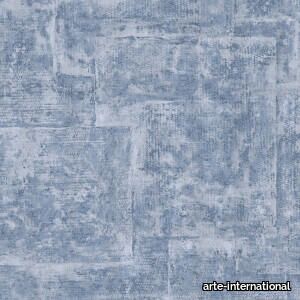
arte-international > Wallcovering
Old quilts were the inspiration for this design, in particular the quilt top, which is often made from several pieces of fabric that are randomly sewn together in a pattern. Here the pattern consists of a patchwork of textile swatches that were printed on metal foil and covered with a thin layer of plaster, offering a fleeting glimpse of the fabric beneath.
Alepine
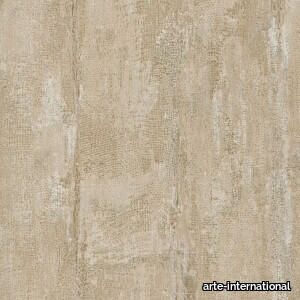
arte-international > Wallcovering
A lovely combination of broad, ripped and aligned strips of textile, which have been covered with a thin layer of plaster. This pattern takes its name from the eponymous super-light silk fabric, Alepine. The design’s distinctive, unconventional look is enhanced by the metal foil.
Chalk Stone
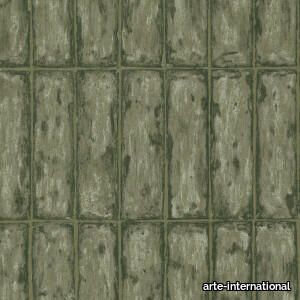
arte-international > Wallcovering
A design that is all about detail and a homage to travertine, a chalk stone used to make sustainable artisan tiles. The Romans used travertine to build large parts of Rome, including the Colosseum. This metallic variant stands out because of its simplicity.
Impasto
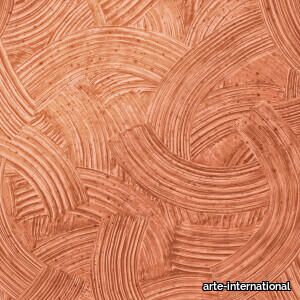
arte-international > Wallcovering
This design is named after a centuries-old painting technique, Impasto, whereby the paint is laid on the surface very thickly, with visible brush strokes, enhancing the texture of this wallcovering for a very realistic result. Impasto is printed on metal foil, combining the best of both worlds: a seamless blend of artisanship and an industrial look and feel.
Ritorto
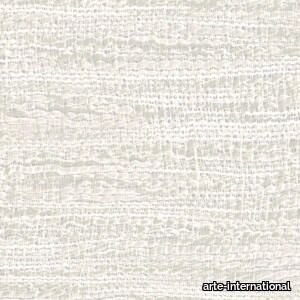
arte-international > Wallcovering
A semi-plain wallpaper with the tactile look and feel of bouclé. The use of uneven yarns is a trademark characteristic of this fabric, which gives it a caressingly soft and rather casual look while still allowing the material to exude pure luxury.
Pentagono
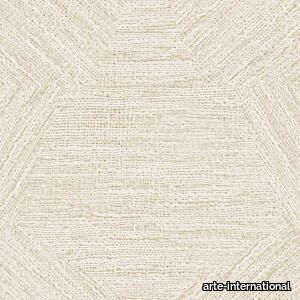
arte-international > Wallcovering
Pentagono has the soft, tactile appeal of luxurious bouclé. The fabric was designed with a graphic pattern of pentagons. This sleek design creates an interesting contrast with the typical casual look of bouclé.
Tintura
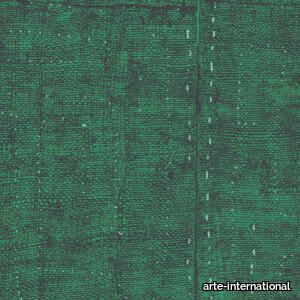
arte-international > Wallcovering
This semi-plain product has the pure look and texture of woven linen. The pieces of fabric are arranged casually next to each other and sewn into place with a coarse, clearly visible stitch. The result is a balanced and at the same time lively wallcovering with a textile look and feel.
Stagionato
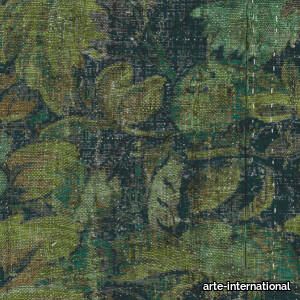
arte-international > Wallcovering
Discover a classic floral drawing in the design Stagionato, Italian for weathered look. The attractive linen texture is extremely visible in close up; from a little further away, it is mainly the weathered, somewhat faded drawing that stands out.
Tropicali
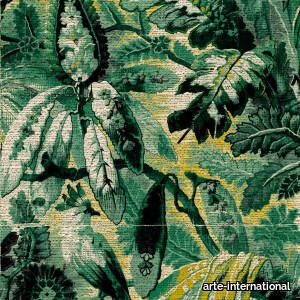
arte-international > Wallcovering
In this tropical scene, drawn in the Old English style, you will discover exotic plants and birds on a base with a bouclé textile look. The illusion of fine tears in the drawing accentuates the craftsmanship of this design.
Adobe
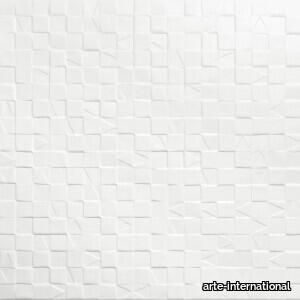
arte-international > Wallcovering
Adobe plays with various kinds of relief, both in height and depth. The irregular squares and triangles create a playful, geometric and intriguing effect. The design refers to unbaked clay tablets (adobe) that are dried in the sun.
Medjoul
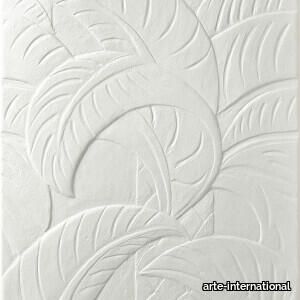
arte-international > Wallcovering
This design has a great deal of relief, due to the technique used and the voluminous material. The pattern is inspired by date palms, a common plant in the Middle East.
Terracotta
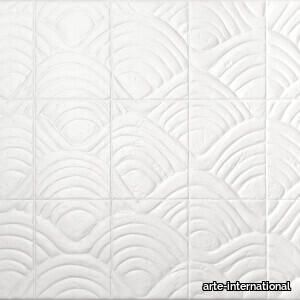
arte-international > Wallcovering
The combination of different light panels in tileform creates both a geometric and an earthy design. Thanks to the pronounced relief of the engravings, it is reminiscent of decorative earthenware or ripples in sand.
Between Rivers
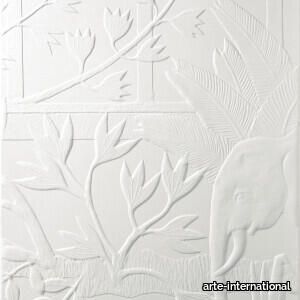
arte-international > Wallcovering
This mythical scene is set in the lush nature of Babylonia between the Tigris and Euphrates rivers, the region where arable and livestock farming originated. The imaginative tableau shows elephants, gazelles, date palms and the remains of ancient temples. Original artwork of Frédérique et Rob Whittle – and Max.
Banyan
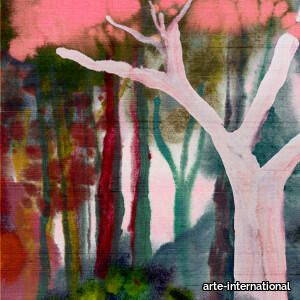
arte-international > Wallcovering
This panoramic takes its name from the banyan tree, which is commonly found along the Silk Road. It lets you wander through a dreamy fantasy landscape, amid the hidden valleys and summits of the Himalayas. The fact that it has a look of pure silk truly makes the panoramic come to life.
Manali
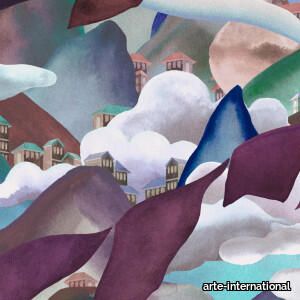
arte-international > Wallcovering
A timeless representation of the traditional mountain villages of the Himalayas, where Buddhist prayer flags often flutter in the wind. The inhabitants of these inhospitable areas try to attract happiness and prosperity in this way. The design was named after the Himalayan village of Manali, where hundreds of flags set the scene.
Saranda
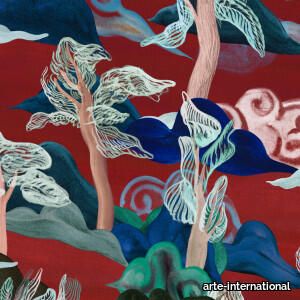
arte-international > Wallcovering
In this design, you will discover hills and trees under a soft cloudy sky. Drawn in a typical Asian style, it was named after the Saranda forest in India. A highly appropriate name, as Saranda literally means ‘seven hundred hills’.
Katan Silk
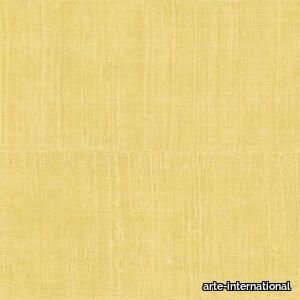
arte-international > Wallcovering
An incredibly detailed impression of Katan Silk, a very light, luxurious type of silk. The minor irregularities that are typical of this fabric are also found here.
Zerzura
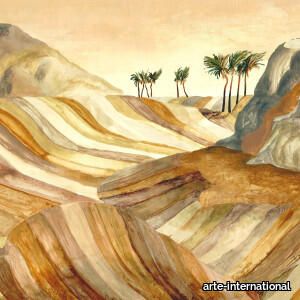
arte-international > Wallcovering
The legend of Zerzura tells the story of a fertile oasis in the desert west of the Nile, of which its existence was never proven. This mythical scene is brought beautifully to life on a velvet background.
Moire
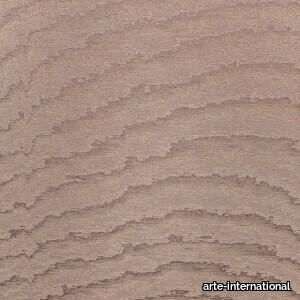
arte-international > Wallcovering
Blinding rays of sun on water and desert sand result in wavy, hypnotic designs and create a moiré effect on the glossy fabric. The motifs are completely random, making each wallcovering unique.
Bayuda

arte-international > Wallcovering
The ochre sandbanks in the Sudanese Bayuda Desert are dotted with rocks. Here, gold prospectors tried their luck in the shallow mines. The whimsical lines combined with the sparkling gold in this pattern are clear references to their source of inspiration.
Gobi
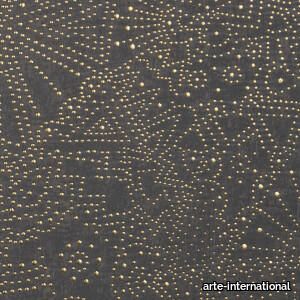
arte-international > Wallcovering
As soon as night falls, millions of stars appear in the clear sky of the Gobi Desert, one of the coldest deserts in the world. The comparison with a magnificent starry sky is unmistakable. The contrast of the glittering dots with the deep or soft colours literally elevates this pattern to higher spheres.
Ténéré
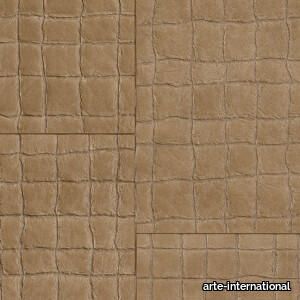
arte-international > Wallcovering
Ténéré, an area in the southern Sahara, is known as one of the driest deserts in the world. The dehydrated and cracked desert soil forms the inspiration for this lacquered imitation leather.
Atacama

arte-international > Wallcovering
This luxurious bouclé fabric contains real alpaca wool. Alpacas live on the high plains of the Andean Mountains, including the Atacama Desert in Chile. This tactile design has a direct link to the traditional costumes of the inhabitants of this region.
Barkhan
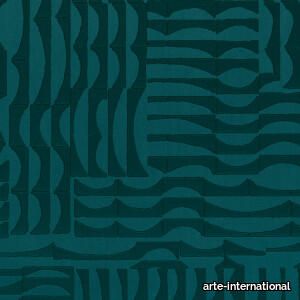
arte-international > Wallcovering
Barkhan dunes are crescent-shaped dunes created by the wind. This shape forms the inspiration for the detailed design, made in a velvet soft fabric.
Line

arte-international > Wallcovering
No striking patterns here, just a plain wallcovering that radiates peace and warmth. Line is made of sisal, a fine jute fibre, resulting in a pure wallcovering with many natural shades.
Geloma
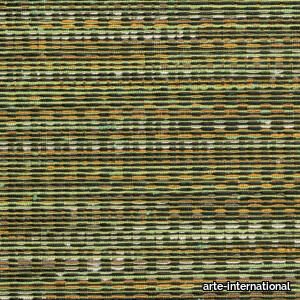
arte-international > Wallcovering
Geloma is a refined jacquard-woven textile in glossy multicolour threads. The dancing horizontal lines create a playful effect on the one hand, while the dark background and warp provide relief on the other. This design owes its name to the word ‘loom’, which in turn comes from the Old English word 'geloma'.
Sambe

arte-international > Wallcovering
This design is made of hemp fibres whose natural colours contrast with the fine black yarns that hold the fibres together. The knots and irregular threads of different thicknesses are clearly visible and this is what makes Sambe so authentic and pure.
Kudzu
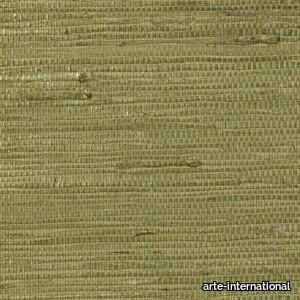
arte-international > Wallcovering
The fibres of the climbing plant kudzu, which is very common in tropical regions, are coarsely woven into a unique wallcovering. The irregular thicknesses and different shades of the various threads reveal its natural origins.
